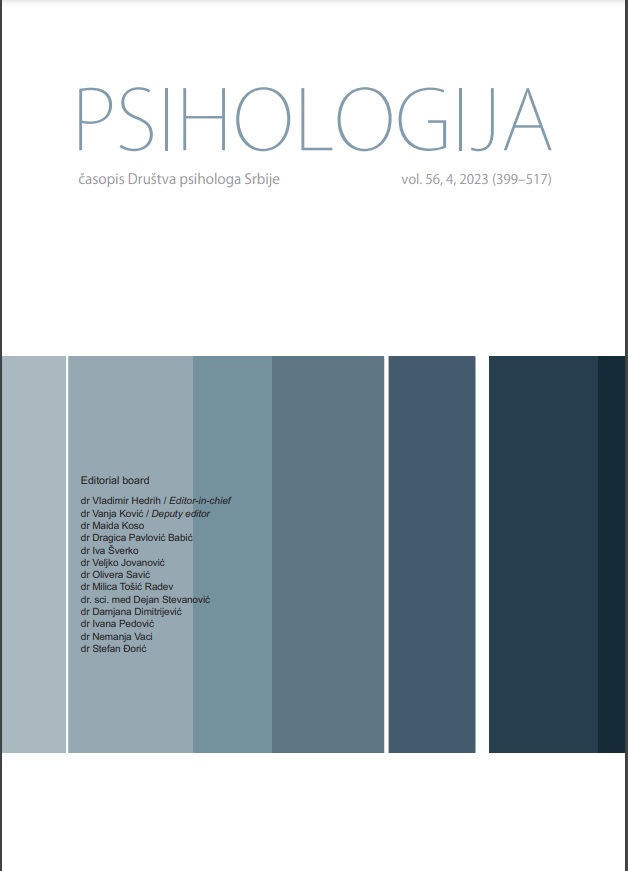PTSD Symptoms, Driving Stress, and Anxious Driving Behavior Among Novice Drivers
PTSD Symptoms, Driving Stress, and Anxious Driving Behavior Among Novice Drivers
Author(s): Mălina Corlătianu, Cornelia Măirean, Alexandra MafteiSubject(s): Individual Psychology, Neuropsychology, Personality Psychology, Clinical psychology, Organizational Psychology, Behaviorism
Published by: Društvo psihologa Srbije
Keywords: posttraumatic stress; driving stress; anxious driving behavior; novice drivers
Summary/Abstract: The present study aimed to evaluate how PTSD symptomatology and general daily stress predict anxious driving behavior. A sample of 119 drivers in their first year since obtaining a driving license who were implicated in a minor or major car crash (caused by them or as a victim/witness) in the last year participated in this study (50.9% men, Mage = 23.78, SD = 5.47). The participants completed scales for measuring PTSD symptoms, driving stress dimensions (i.e., aggression, dislike of driving, hazard monitoring, proneness to fatigue, and thrill-seeking), and anxious driving behavior dimensions (i.e., performance deficits, exaggerated safety behavior, and hostile behavior). The results indicated that aggression positively predicted hostile behavior, while dislike of driving was a positive predictor for performance deficits and a negative predictor for hostile behavior. Thrill-seeking and proneness to fatigue positively predicted performance deficits. The theoretical and practical implications of these results are discussed.
Journal: Psihologija
- Issue Year: 56/2023
- Issue No: 4
- Page Range: 415-430
- Page Count: 16
- Language: English, Serbian

